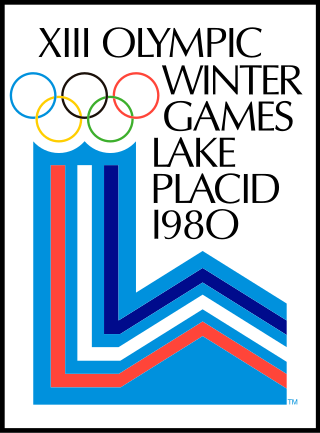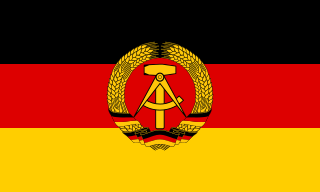
The 1980 Winter Olympics, officially the XIII Olympic Winter Games and also known as Lake Placid 1980, were an international multi-sport event held from February 13 to 24, 1980, in Lake Placid, New York, United States.

The 1980 Winter Paralympic Games, the second Winter Paralympics, were held from 1 to 7 February 1980 in Geilo, Norway. Eighteen countries took part with 299 athletes. A demonstration event was held in sledge downhill racing. All classes of athletes with locomotor disabilities were able to participate. Organized by the International Stoke Mandeville Games Federation (ISMGF) and the International Sports Federation of the Disabled (ISOD).

The FIS Nordic World Ski Championships is a biennial Nordic skiing event organized by the International Ski Federation (FIS). The World Championships was started in 1925 for men and opened for women's participation in 1954. World Championship events include Nordic skiing's three disciplines: cross-country skiing, ski jumping, and Nordic combined. From 1924 to 1939, the World Championships were held every year, including the Winter Olympics. After World War II, the World Championships were held every four years from 1950 to 1982. Since 1985, the World Championships have been held in odd-numbered years.
Alpine skiing at the 1968 Winter Olympics consisted of six events, held 9–17 February at Chamrousse, southeast of Grenoble, France. Jean-Claude Killy of France won all three men's events, repeating Toni Sailer's triple-gold of 1956. Since Killy's feat, no male alpine ski racer has won three gold medals in a single Olympics..

Alpine skiing at the 1960 Winter Olympics at Squaw Valley, California, United States, consisted of six events. Competitions took place at Squaw Peak, KT-22, and Papoose Peak.
Figure skating at the 1980 Winter Olympics took place at the Olympic Center Arena in Lake Placid, New York, United States.

Alpine Skiing at the 1980 Winter Olympics consisted of six alpine skiing events. The races were held February 14–23 at Whiteface Mountain in Wilmington, New York, northeast of host Lake Placid.

The FIS Alpine World Ski Championships is an alpine skiing competition organized by the International Ski Federation (FIS).

Alpine skiing at the 1972 Winter Olympics consisted of six events, held February 5–13 near Sapporo, Japan. The downhills were held at Mount Eniwa, and the four technical events at Teine.
At the 1956 Winter Olympics in Cortina d'Ampezzo, Italy, the six alpine skiing events were held from Friday, 27 January to Friday, 3 February.
At the 1952 Winter Olympics in Oslo, Norway, the six alpine skiing events were held from Thursday, 14 February, to Wednesday, 20 February. The downhill and giant slalom events were held at Norefjell in Krødsherad, Buskerud, and the slalom events at Rødkleiva in Oslo.

Alpine skiing has been contested at every Winter Olympics since 1936, when a combined event was held in Garmisch-Partenkirchen, Germany.

Austria competed at the 1980 Winter Olympics in Lake Placid, United States.

East Germany competed at the 1980 Winter Olympics in Lake Placid, United States.

Turkey sent a delegation to compete at the 1994 Winter Olympics in Lillehammer, Norway from 12–27 February. Turkey was making its 11th appearance at the Winter Olympic Games. The delegation consisted of a single athlete, cross-country skier Mithat Yıldırım. In his only event, he finished in 87th place.
Hans Hiltebrand is a Swiss bobsledder who competed from the late 1970s to the late 1980s. He won five medals at the FIBT World Championships with two golds and three silvers (Two-man: 1982, 1987; Four-man: 1981.

The Mt. Van Hoevenberg Olympic Bobsled Run is a venue for bobsleigh, luge and skeleton in the United States, located at the Lake Placid Olympic Sports Complex in Lake Placid, New York. This venue was used for the 1932 and 1980 Winter Olympics and for the only winter Goodwill Games in 2000. The track hosted both the first FIBT World Championships and FIL World Luge Championships held outside of Europe, doing so in 1949 and 1983. The third and most recent version of the track was completed in 2000. In 2010 the bobsled track was listed on the National Register of Historic Places.

For the 1980 Winter Olympics in Lake Placid, New York, United States, a total of seven sports venues were used. All five of the venues used for the 1932 Winter Olympics were also used at the 1980 Winter Games with adjustments. These adjustments included electronic scoreboards, increased refrigeration, and the addition of a separate luge track. This was the last Winter Olympics where there were separate bobsleigh and luge tracks. The closest finish in Olympic history in cross-country skiing led skiing officials to time future events in hundredths of a second rather than tenths of a second. This would also apply to biathlon events. Eric Heiden won five gold medals at the speed skating oval while the "Miracle on Ice" took place between Americans and Soviets at the Olympic Center. In the late 1990s, the luge track was demolished and a new combination track was constructed in time for the only Winter Goodwill Games held. The sliding venue was named to the American National Register of Historical Places in February 2010.











